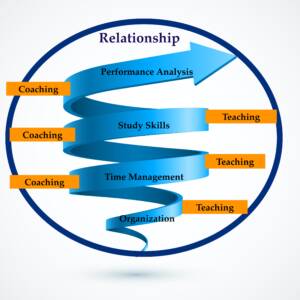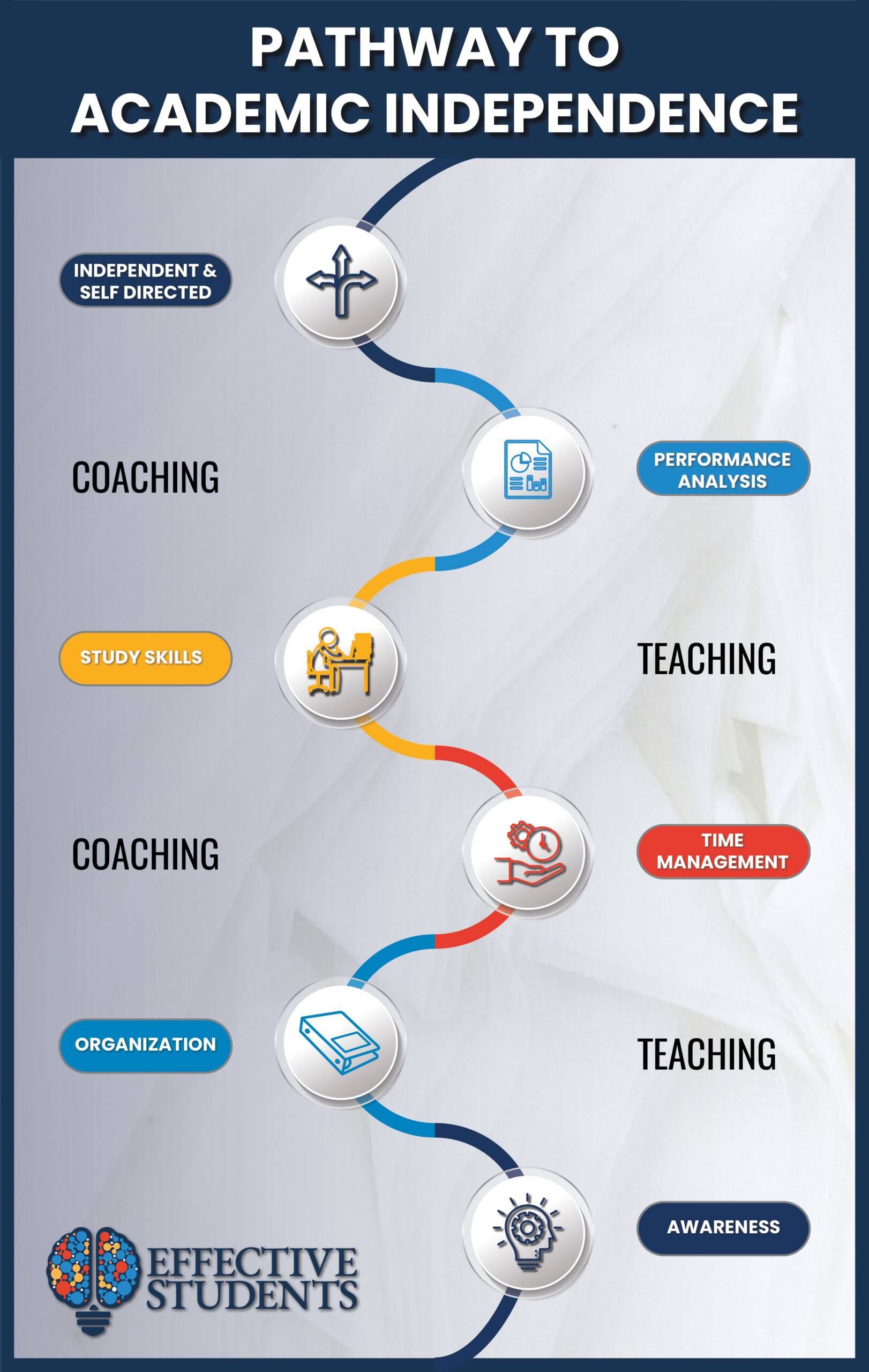Developing executive functioning skills is a process. When it comes to helping students build these essential skills, an academic coach makes all the difference. Each student is unique so personalizing the approach and relationship are foundational to success. An effective coach knows how and when to shift between teaching and coaching as they partner with the student fostering a growth mindset leading to academic independence. In the skill development process, students can demonstrate strengths in some areas and weaknesses in others on the journey to mastery. With a reliable partnership and pathway, students are enlisted to participate on their journey to success.

What Makes an Academic Coach Effective?
Effective coaching relationships require three components:
- Reliability – Coaches demonstrate reliability when they consistently share the knowledge and practices to move the student to the next level.
- Relatability – Coaches exhibit relatability when they connect with students under an umbrella of trust. When a coach has experienced a similar situation to a student and is honest/real with their feedback, the student trusts them and their guidance.
- Resources – Coaches operate as resources when they can capably adapt to changing academic environments and select the appropriate resource at the right time to help the student. Effective coaches can quickly access their personal rolodex and furnish a lesson or solution at the opportune time. The resource can be within our outside of the immediate environment.
Goals of Academic Coaching
The ultimate goal in coaching is to help students achieve Academic Independence and reach their personal goals – this process is referred to as goal setting. Coaches help students become more self-aware and self-directed learners. Here are a few more images we are working on:

Lessons in Academic Coaching: Relationships Matter
Students, like adults, don’t care how much you know until they know how much you care. Students read people and make decisions about credibility quickly – especially middle and high schoolers. An effective coach must communicate, connect and consider the goals of the student so they feel ‘understood’. The earlier this occurs, the more apt the student is to follow the lead under the umbrella of the coaching relationship.
Just the other day, a new student and parent arrived in my office. The student was clearly under duress and tensions were high. We had to connect and find value for the student in about 180 seconds, or he was going to be checked out for our full hour together.
Ultimately, this situation provided the perfect opportunity to build the coaching relationship. To prevent the student from checking out and help them reframe their feelings, we began by earning their trust with three key steps:
- Understanding – the tension between the student and the parent are not uncommon.
- Acknowledging the student’s perspective. In this situation, the student felt ‘stuck’, did not know how to resolve the problem so he was considering not participating.
- Relating – Offering information about personal experiences or those of other students in his situation then setting clear expectations on how coaching could move him to a place of Academic Independence.
By addressing the conditions above, I had an early opportunity to begin demonstrating reliability, relatability, and share resources that could positively affect his coaching experience. We still have a road ahead to build his skills but we have passed the first hurdle of trust. Now we can move on to build his skills and help his parents let him practice developing independence.
Every student (and adult) has a personal win. The sooner we find those wins, the faster a student will engage in solving the problems ahead with us.
What does your student want out of education?